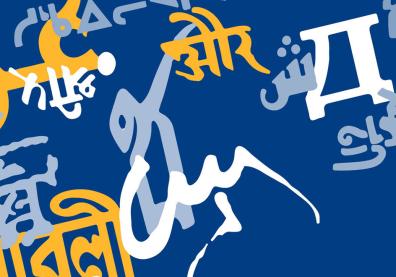Conference: "Rethinking knowledge, questioning scientific approaches ? The Baltic States, Ukraine, Belarus and Moldavia Between Central Europe and the Former Soviet Space".

This two-day conference will focus on developments in humanities and social sciences (HSS) in and about Belarus, Ukraine, Moldavia and the Baltic states. These states, formerly Soviet republics, all belonged to different empires (Austro-Hungarian Empire, Ottoman Empire, Russian Empire) before 1917, depending on the era, and form part of a buffer zone torn between East and West. Russia's war of aggression against Ukraine prompted us to rethink our knowledge of Ukraine and accelerate its “decolonization”, in order to study Ukrainian history and society in their specificity and in their relations with the countries of Central Europe. Decentering knowledge about Belarus and Moldavia is also considered. In the Baltic States, this process had begun much sooner, but the current situation raises new questions. These three countries are also becoming a place for Ukrainian, Belarusian and Russian scientists to find refuge.
The aim of this conference is :
-
To study the evolution of the region's territorial boundaries, as past and present scientific practices define them. HSS have never ceased to draw and question large ‘regions’, supposedly sharing geographical, historical, political, cultural and linguistic characteristics: Eastern Europe, Central and Eastern Europe, Mitteleuropa, Middle or Central Europe, post-Soviet space. Their names and outlines speak volumes about both the objects defined and the observers. Belarus, Ukraine, Moldavia and the Baltic States have been studied as parts of different spaces, depending on the era, the country and the discipline. How is this question of perimeters coped with in these countries, but also in their European neighbors (notably Poland) and in former Soviet republics turned into sovereign States? What is the situation in France?
-
To grasp the challenges facing the HSS in Belarus, Ukraine, Moldavia and the Baltic States, with a particular focus on the way in which research articulates national spaces within larger or contrasting groupings (national and transnational minority groups; authoritarian contexts, war and research in exile; decolonization and the appeal of a national tale or narrative; political agendas, particularly rapprochement with the European Union; the place of expertise and its relationship to research, etc.).
-
To examine research on Belarus, Ukraine, Moldavia and the Baltic States carried out by researchers in Central and Eastern Europe, the Caucasus and Central Asia over the last three decades. Whereas in the USSR, knowledge and expertise of its internal geo-cultural areas were largely centralized, how are these mutating today in the states that were formerly Soviet republics? Have the relationships forged between institutions during the Soviet era disappeared? To what extent is research now focusing more on circulations and connections between countries, far from Moscow, and how does this new horizontality in knowledge production affect the content of knowledge? To what extent is the perspective of “decolonization” actually used, and comparative studies of this process emerging? How are the relations between Belarus, Ukraine, Moldavia and the Baltic States and the rest of the former USSR being studied? We'd like the conference to end with a round-table discussion entitled “Humanities and Social Sciences for European Neighborhood and Enlargement Policies”, with representatives from our two areas at the French Ministry of Higher Education and Research and the French Ministry of Europe and Foreign Affairs. The proceedings will be partially published.
Please send your proposals by December 15th, 2024 to View e-mail. They should include your first name, surname and institutional affiliation, the title of your presentation and a 5-10 lines abstract.
Scientific Committee : Olga Bronnikova, Mateusz Chmurski, Anna Colin-Lebedev, Iryna Dmytrychyn, Galyna Dranenko, Catherine Géry, Alexandra Goujon, Catherine Gousseff, Paul Gradvohl, Luba Jurgenson, Emilia Koustova, Éric Le Bourhis, Anne Le Huérou, Florent Parmentier (tbc), Ioana Popa, Nadège Ragaru, Kathy Rousselet, Clara Royer, Laurent Tatarenko.
Organizing Committee : Olga Bronnikova, Françoise Daucé, Paul Gradvohl, Valéri Kossov, Emilia Koustova, Nadège Ragaru, Kathy Rousselet, Clara Royer, Tatyana Shukan.